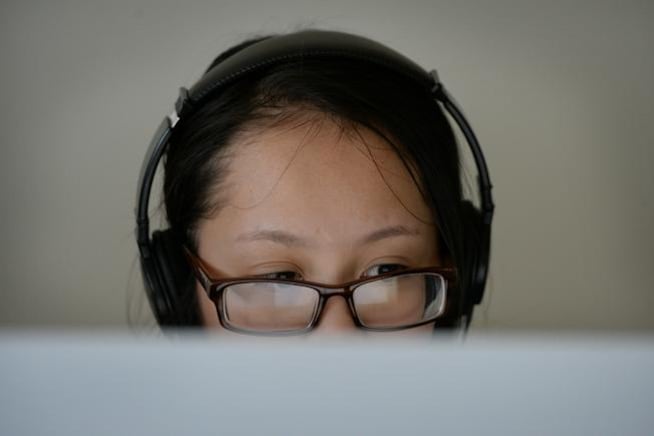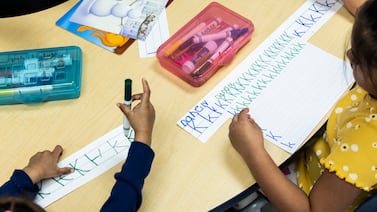The Biden administration said Monday that states must administer federally required standardized tests this year, but schools won’t be held accountable for the results — and states could give shorter, remote, or delayed versions of the exams.
The decision means that schools will have to find ways to safely administer tests to tens of millions of students, many of whom are still learning remotely. It’s the first high-stakes decision for the Biden education department, coming even before its secretary of education nominee has been confirmed, and a signal that the new administration sees test score data as part of its strategy for helping students recover from the pandemic.
“To be successful once schools have re-opened, we need to understand the impact COVID-19 has had on learning and identify what resources and supports students need,” Ian Rosenblum, acting assistant education secretary, wrote in a letter to state education leaders.
Last school year, regular standardized testing was canceled as the pandemic closed school buildings across the country. This year, it’s been unclear whether the Biden administration would let that happen again.
Several states, including California, Georgia, Illinois, Michigan, New Jersey, and New York, have already asked for or said they planned to request a waiver from this year’s testing requirements entirely. It’s unclear how many of those states have been planning in earnest to administer the exams, as they now must. Officials in Florida, Indiana, Tennessee, and Texas have indicated that they planned to test students regardless of what the Biden administration decided.
Still, the Biden administration made clear that the pandemic may change how testing works. The letter sent by the department on Monday says states can request to shorten assessments, provide the test remotely, or lengthen the window in which students can sit for the exam — potentially extending it into the summer or the start of the following school year.
“Certainly, we do not believe that if there are places where students are unable to attend school safely in person because of the pandemic that they should be brought into school buildings for the sole purpose of taking a test,” wrote Rosenblum, echoing a comment education secretary nominee Miguel Cardona made during his confirmation hearing.
The letter notes that the department will consider additional flexibility on a state-by-state basis.
States can also seek waivers for the requirements that they identify low-performing schools. Schools already identified — based on pre-pandemic data — keep that designation.
Opponents of testing this year have emphasized that it will prove logistically difficult and won’t be a good use of instructional time. Some testing critics also hoped the pandemic would lead to a de-emphasizing of standardized assessments over the long term.
“It is a frustrating turn to see the administration ask states to continue requiring assessments during this tumultuous school year,” Randi Weingarten, president of the American Federation of Teachers and usually a close Biden ally, said in a statement. “We have always known that standardized tests are not the best way to measure a child’s development.”
Some civil rights groups, as well as top Congressional Democrats, have lined up on the other side, arguing that testing is all the more essential after a long period of disrupted schooling.
The Biden administration agreed. “It is urgent to understand the impact of COVID-19 on learning,” Rosenblum wrote.
Nevertheless, some state officials have acknowledged that they have little ability to force students to show up to sit for an exam, and remote testing brings concerns about the accuracy and validity of the results — particularly because students who have lost the most learning might be the least likely to take the tests.
Ohio provides a window into what testing during the pandemic could look like. Earlier this year, the state administered in-person reading exams meant for all third graders. In a normal year, 95% of third graders take the test; this year, participation dropped to 81%. Participation was lowest among students in districts that were fully remote, as well as among low-income students and students of color. In some places, like Columbus, the state’s largest school district, very few students took the exam.






